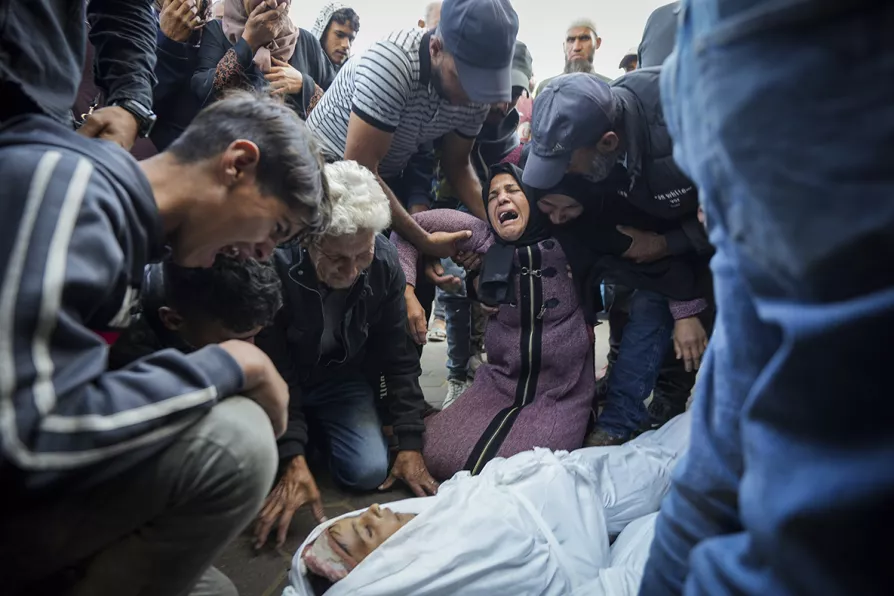Israeli attack on northern Gaza shelter kills at least 109

 Palestinians mourn their relatives killed in the Israeli bombardment of the Gaza Strip at a hospital morgue in Deir al-Balah, October 29, 2024
Palestinians mourn their relatives killed in the Israeli bombardment of the Gaza Strip at a hospital morgue in Deir al-Balah, October 29, 2024
AN ISRAELI attack on a five-storey building in northern Gaza being used as a shelter for displaced persons killed at least 109 Palestinians, mostly women and children, today.
The massacre in Beit Lahiya took place the after the Israeli parliament passed a new law that could severely restrict the ability of the United Nations agency for Palestinian refugees, UNRWA, to operate in the Palestinian territories.
Dr Hossam Abu Safiya,director of Kamal Adwan Hospital, where victims of the latest attack were taken, said: “The healthcare system has completely collapsed,” adding that wounded people arriving there were dying because no care could be provided.
Similar stories













